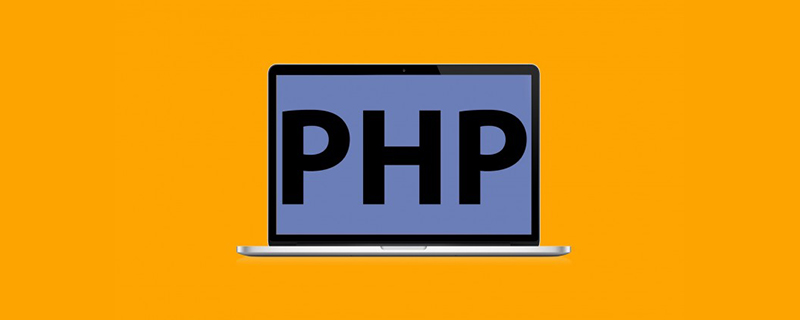How to prohibit directory listing in php
How to prohibit directory listing in php: first find and open the "httpd.conf" file; then add the "–" symbol in front of "Indexes" in "Options Indexes FollowSymLinks"; finally save the changes.

Recommended: "PHP Video Tutorial"
Configuration method to disable display of directory file list in Apache
If you enter the address of a virtual directory: http://localhost:8080/b/
If there is no index.html in the virtual directory, the browser will also display the directory structure of the virtual directory. List the files and subdirectories under this virtual directory.
How to prevent Apache from displaying directory listing?
To prevent Apache from displaying the directory structure list, just remove Indexes in Option.
For example, let’s take a look at the directory configuration of a directory:
<Directory "D:/Apa/blabla">
Options Indexes FollowSymLinks #----------> Options FollowSymLinks AllowOverride None
Order allow,deny
Allow from all
</Directory>You only need to remove Indexes in the red code above to prevent Apache from displaying the directory structure. The user will not see the list of files and subdirectories in this directory.
The function of Indexes is to display the directory structure when there is no index.html file in the directory. If Indexes is removed, Apache will not display the list of the directory.
If set like this, the directory list may still be displayed:
<Directory / >
Options FollowSymLinks AllowOverride None
Order allow,deny
Allow from all
</Directory>Second method
Edit the httpd.conf file Edit the httpd.conf file
vi ./conf/httpd.conf
Find the following content:
……
<Directory “C:/Program Files/Apache2.2/htdocs”>
#
# Possible values for the Options directive are “None”, “All”,
# or any combination of:
Indexes Includes FollowSymLinks SymLinksifOwnerMatch ExecCGI MultiViews
#
# Note that “MultiViews” must be named *explicitly* — “Options All”
# doesn’t give it to you.
#
# The Options directive is both complicated and important. Please see
# http://httpd.apache.org/docs/2.2/mod/core.html#options
# for more information.
#
Options Indexes FollowSymLinks
#
# AllowOverride controls what directives may be placed in .htaccess files.
# It can be “All”, “None”, or any combination of the keywords:
# Options FileInfo AuthConfig Limit
#
AllowOverride None
#
# Controls who can get stuff from this server.
#
Order allow,deny
Allow from all
</Directory>
……Add the – symbol in front of Indexes in Options Indexes FollowSymLinks.
That is: Options -Indexes FollowSymLinks
[Note: before Indexes, adding means allowing directory browsing; adding – means prohibiting directory browsing. 】
In this case, the entire Apache prohibits directory browsing.
If it is in a virtual host, just add the following information:
<Directory “D:\test”>
Options -Indexes FollowSymLinks
AllowOverride None
Order deny,allow
Allow from all
</Directory>In this case, directory browsing under the test project is prohibited.
Note: Remember not to change "Allow from all" to "Deny from all", otherwise, the entire website cannot be opened.
There is another method:
You can enter
<Files *> Options -Indexes </Files>
in the .htaccess file in the root directory to prevent Apache from listing the directory structure.
The above is the detailed content of How to prohibit directory listing in php. For more information, please follow other related articles on the PHP Chinese website!

Hot AI Tools

Undresser.AI Undress
AI-powered app for creating realistic nude photos

AI Clothes Remover
Online AI tool for removing clothes from photos.

Undress AI Tool
Undress images for free

Clothoff.io
AI clothes remover

AI Hentai Generator
Generate AI Hentai for free.

Hot Article

Hot Tools

Notepad++7.3.1
Easy-to-use and free code editor

SublimeText3 Chinese version
Chinese version, very easy to use

Zend Studio 13.0.1
Powerful PHP integrated development environment

Dreamweaver CS6
Visual web development tools

SublimeText3 Mac version
God-level code editing software (SublimeText3)

Hot Topics
 CakePHP Project Configuration
Sep 10, 2024 pm 05:25 PM
CakePHP Project Configuration
Sep 10, 2024 pm 05:25 PM
In this chapter, we will understand the Environment Variables, General Configuration, Database Configuration and Email Configuration in CakePHP.
 PHP 8.4 Installation and Upgrade guide for Ubuntu and Debian
Dec 24, 2024 pm 04:42 PM
PHP 8.4 Installation and Upgrade guide for Ubuntu and Debian
Dec 24, 2024 pm 04:42 PM
PHP 8.4 brings several new features, security improvements, and performance improvements with healthy amounts of feature deprecations and removals. This guide explains how to install PHP 8.4 or upgrade to PHP 8.4 on Ubuntu, Debian, or their derivati
 CakePHP Date and Time
Sep 10, 2024 pm 05:27 PM
CakePHP Date and Time
Sep 10, 2024 pm 05:27 PM
To work with date and time in cakephp4, we are going to make use of the available FrozenTime class.
 CakePHP File upload
Sep 10, 2024 pm 05:27 PM
CakePHP File upload
Sep 10, 2024 pm 05:27 PM
To work on file upload we are going to use the form helper. Here, is an example for file upload.
 CakePHP Routing
Sep 10, 2024 pm 05:25 PM
CakePHP Routing
Sep 10, 2024 pm 05:25 PM
In this chapter, we are going to learn the following topics related to routing ?
 Discuss CakePHP
Sep 10, 2024 pm 05:28 PM
Discuss CakePHP
Sep 10, 2024 pm 05:28 PM
CakePHP is an open-source framework for PHP. It is intended to make developing, deploying and maintaining applications much easier. CakePHP is based on a MVC-like architecture that is both powerful and easy to grasp. Models, Views, and Controllers gu
 CakePHP Creating Validators
Sep 10, 2024 pm 05:26 PM
CakePHP Creating Validators
Sep 10, 2024 pm 05:26 PM
Validator can be created by adding the following two lines in the controller.
 How To Set Up Visual Studio Code (VS Code) for PHP Development
Dec 20, 2024 am 11:31 AM
How To Set Up Visual Studio Code (VS Code) for PHP Development
Dec 20, 2024 am 11:31 AM
Visual Studio Code, also known as VS Code, is a free source code editor — or integrated development environment (IDE) — available for all major operating systems. With a large collection of extensions for many programming languages, VS Code can be c






